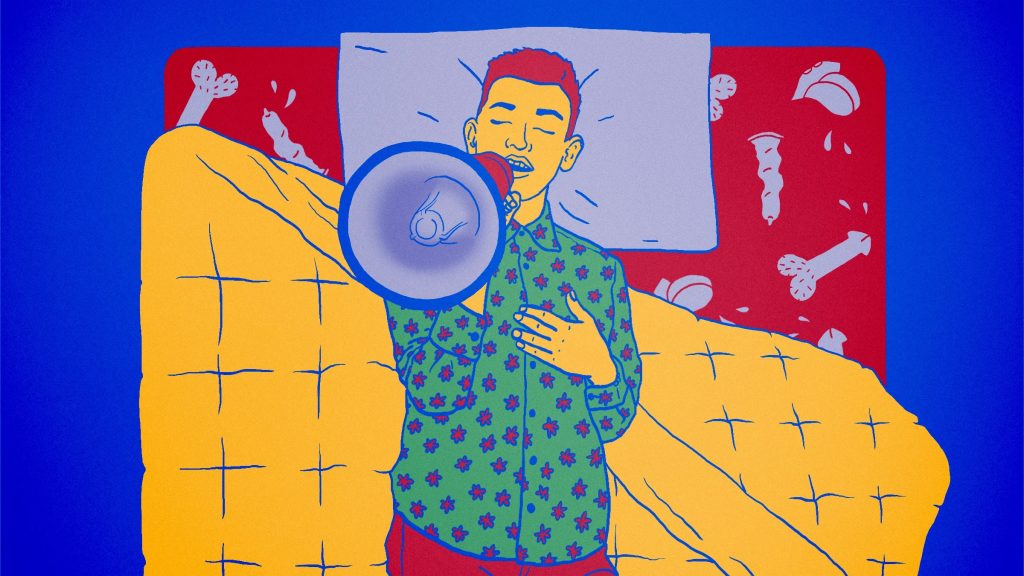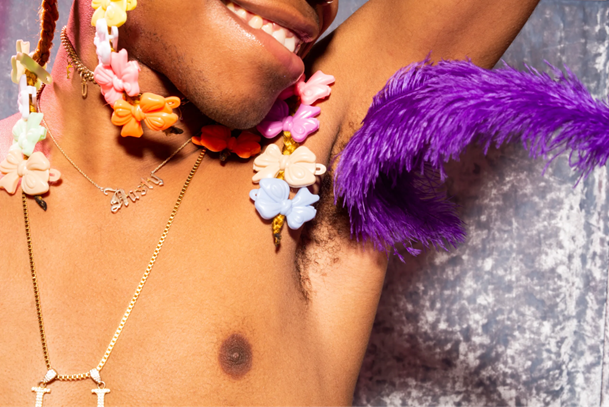Halloween Kinks Do Not Make You A Real Ghost!
Often, people with certain kinks or unconventional sexual preferences in bed are looked down upon and labelled as sexually deviant or abnormal. Even the Merriam-Webster dictionary defines the word “kinky” in a similar fashion. This is because the psychology of kinks is often misunderstood.

What is a Kink?
How does a psychologist define kink and how is this conceptualization different from the layperson one? According to researcher Samuel Hughes, a kink is defined as “consensual, non-traditional sexual, sensual, and intimate behaviors such as sadomasochism, domination and submission, erotic roleplaying, fetishism, and erotic forms of discipline.”

Five Stages of Kink Identity Development
Samuel Hughes identified five stages of kink identity development. He uses this model to explain how people develop kinks.
- The first stage is early encounters, which takes place around 10 years of age. In this stage kinky people experience an attraction, draw, or fascination with a kink or fetish interest, often without the words or concepts to understand it, and often without sexual arousal.
- The second stage is exploration with self, which takes place between 5 to 14 years of age. This stage involves kinky individuals getting to know their own kink or fetish interests through fantasizing, erotic media, masturbation, etc.
- The third stage is called evaluation, which entails assessing what their kink means to them and how big of a role it plays in their self-expression, sexuality and identity. It can also involve active feelings of self-doubt, questioning one’s kinks and feeling weird about them.
- Finding other people who relate to your interests and can understand your sexual preferences is the next stage. Coming across and interacting with people who are somewhat similar to them in this regard often proves to be a source of respite, and it makes the process of normalizing their kinks and getting rid of any feelings of shame and internalised stigma easy.
- For some people, being kinky can be very natural to them even without any sexual exploration with a partner, while others need to engage in interpersonal sexual activity to identify and understand their kinks. This exploration with others forms the last stage of the model.

Debunking Myths
I want to start by debunking one of the most common assumptions about kinks, which is that kinky preferences are restricted to BDSM (bondage, discipline/domination, submission/sadism, and masochism). However, that is far from true. Kinks come in all forms. Some common ones include hosiery, voyeurism, exhibitionism, roleplay, dirty talk, urophilia, nipple play, humiliation, etc., just to name a few. But why is it that some people are into kinkier activities than others?
A very common-sense notion is that kinky tendencies are rooted in traumatic experiences, like being abused as a child. However, in reality, a kink can develop innately in childhood, or be adopted later in life. Moreover, engaging in kinky behavior may also help in dealing with past trauma. Hughes says that “a sexual assault survivor might initially feel afraid, weak, and powerless during their actual sexual assault, however, simulating that assault via consensual roleplaying with a trusted partner can help them feel powerful (because they consensually negotiated and agreed to it, and can use a safeword to stop the scene), strong (because they feel they can get through whatever physical pain or intensity comes their way), and brave, for facing what can often be dark times in their past head-on.”
Another misunderstanding is that kinks and fetishes contaminate the beauty of making love, an experience that is expected to be more romantic than rough. A lot of people have a hard time putting kinks and romance in the same box, as being kinky is perceived to be a more common characteristic of casual hook-ups than something that can entail sexual activity between a committed couple. In sexual play that involves intense sensation (sometimes, pain), for example, the players seek to achieve pleasure and challenge their boundaries. It is important to understand the manner in which one consensually derives pleasure from sexual activity cannot have any bearing on the nature of relationship between the sexual partners.
Another common myth is that only queer people are kinky, when in reality, this is far from the truth. Having kinks, fetishes and so-called unusual desires is in no way linked to your sexual orientation or gender identity and expression. But as Rajvi Desai points out, “kinks can help marginalized communities feel more comfortable in their own skin. For trans people, their relationships with their bodies are colored by dysphoria, awkwardness, and trauma. For a group whose bodies and existence are unabashedly questioned, fetishized, or who are made to feel unwelcome in societal institutions, consent in a sexual scenario holds utmost importance.”

Communication is Extremely Important!
When you play around with and explore kinks, it is of utmost importance to communicate openly with your sexual partner(s) about how, when, and what to explore. There is room for things to go south if the parties involved are not entirely honest with each other. Also, draw boundaries beforehand and keep safe words to make sure you are never uncomfortable. Remember, exploration is fun, but only when it is 100% consensual, safe, and mutual. If done consensually and respectfully, exploration of kinks together can truly be a beautiful and intimate experience of vulnerability, passion, and self-expression between sexual partners.
It’s high time we stop portraying kinks as this salacious and abnormal behaviour. It’s not a form of perversion and needs to be un-associated with someone’s character. Just because you wear spooky outfits on Halloween, does not mean you are an actual ghost. Similarly, playing dress up in the bedroom, wearing kinky outfits, or have certain sexual preferences that are not very common, does not mean you are “sexually deviant” or “abnormal.” It just means you like to have some fun in bed, and rightly so!
Author

